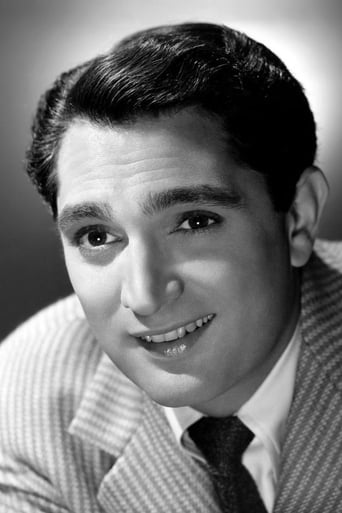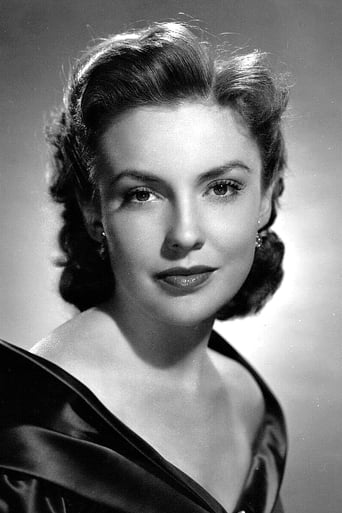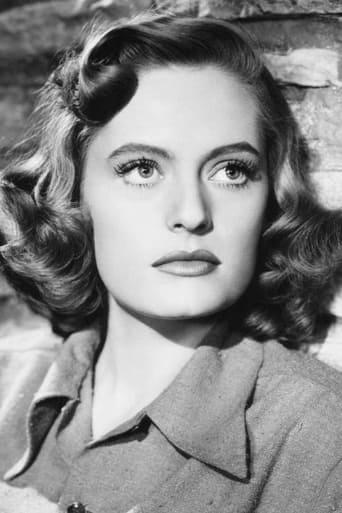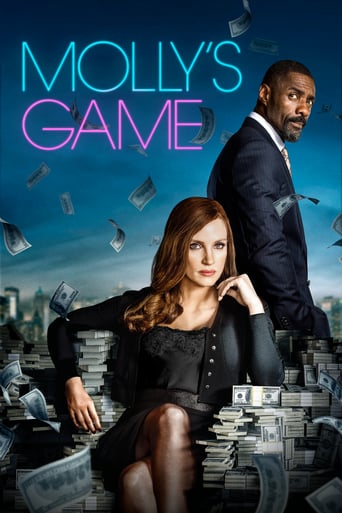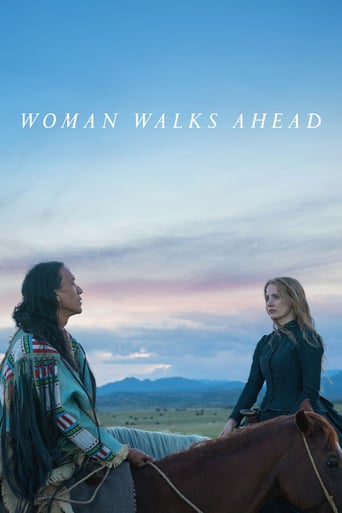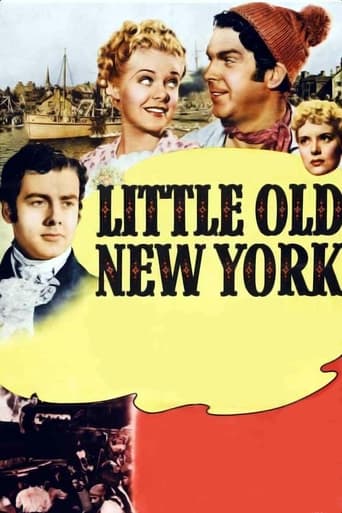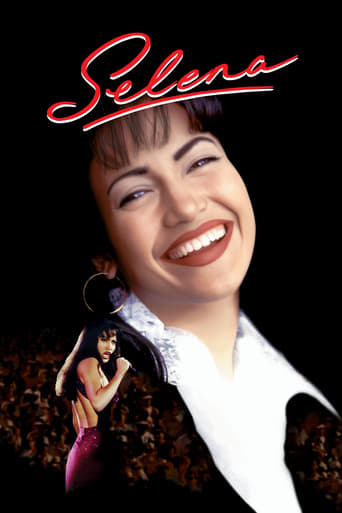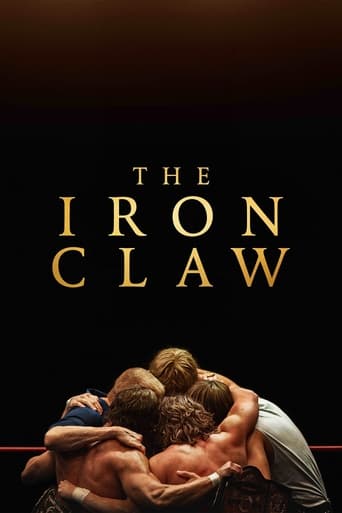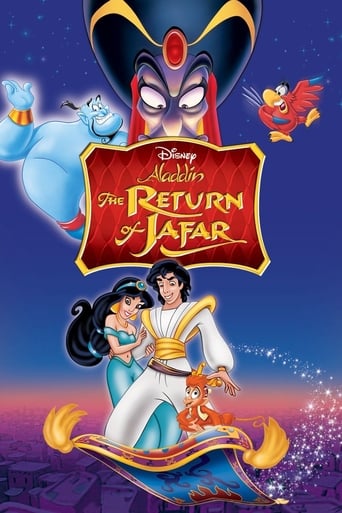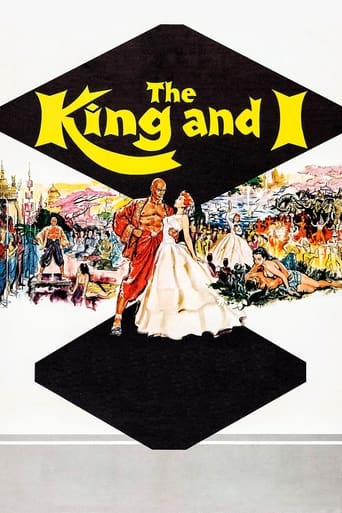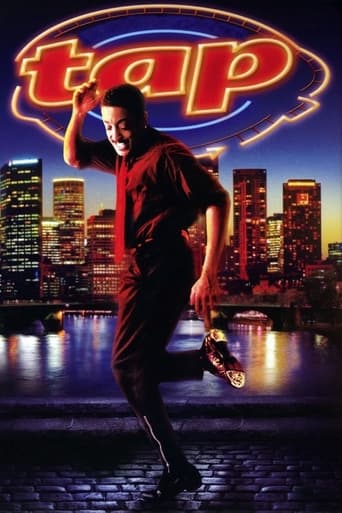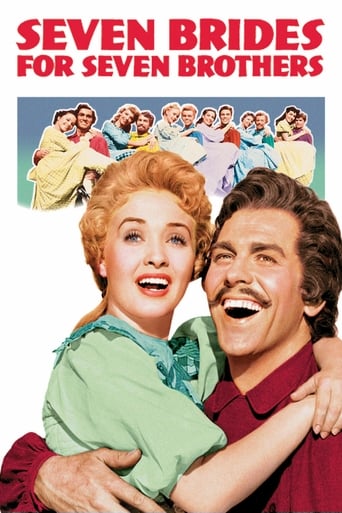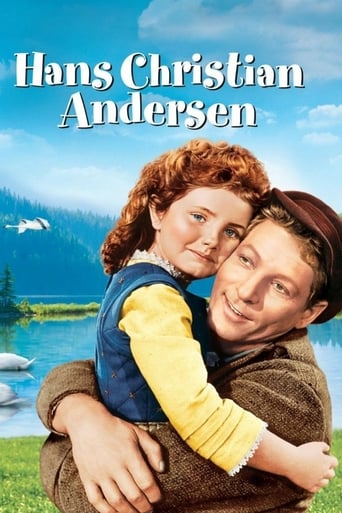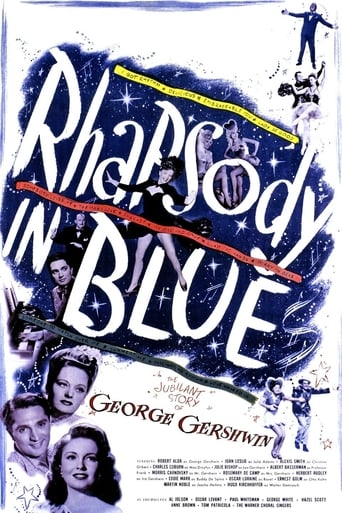
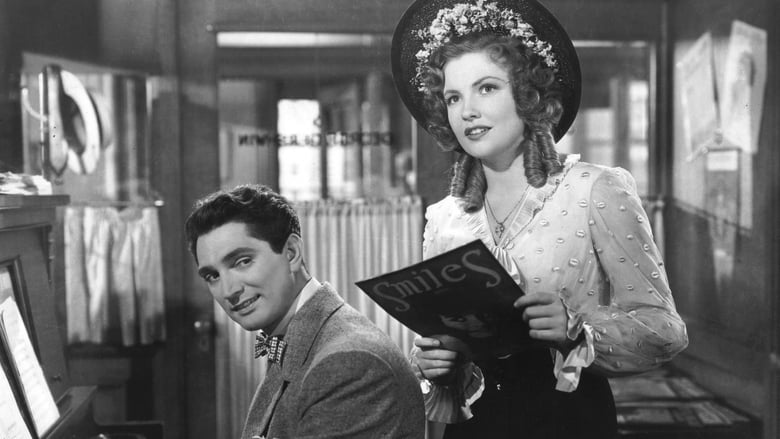
Rhapsody in Blue (1945)
Fictionalized biography of George Gershwin and his fight to bring serious music to Broadway.
Watch Trailer
Cast


Similar titles
Reviews
This is a very good biopic of the great American composer, George Gershwin, who has left his mark on the musical world everywhere. Gershwin (1898-1937), was born Jacob Gershowitz in New York City. Like many other musical geniuses, he died young. Mozart (1756-1791) was just 35 years old when he died. Franz Schubert (1779-1828) was just 31. Frederic Chopin (1810-1849) died at 39. And the just blossoming American, Louis Chauvin (1881-1908) died at 27. Gershwin was just 38 when he died. And, as those before him born with a natural genius for music, Gershwin left a treasure trove of great music to be enjoyed by all throughout the ages. How much more Gershwin, and the others who died so young might have contributed can't be known. But their musical legacy can be enjoyed and appreciated for all time. This film was made just seven years after Gershwin's death. It's notable for including some actual artists and friends who loomed large in Gershwin's professional life. Among those playing themselves are pianist, composer and actor Oscar Levant, and big band leader and composer Paul Whiteman. And Al Jolson reprises his first performance of "Swanee" in black face that made it a great hit and catapulted Gershwin's career.Oscar Levant gives a light touch to the film with his witty dialog in places. And the film has some scenes with some other great talents. The tap dancer in Remick's music store is Gower Champion who would become one of the great dancers and choreographers of Broadway. Hazel Scott is the talented musician who plays the piano and sings when Gershwin goes to dinner in Paris. Al Gallodoro is the jazz clarinetist who plays the eerie opening to "Rhapsody in Blue." This film is appropriately named for Gershwin's best-known and most clearly American musical work, "Rhapsody in Blue." Robert Alda, who resembles Gershwin in appearance, played him in this film. It was Alda's screen debut, and he does a marvelous job. He gives just the right amount of self-pride to the composer who was known to be very self-centered, but also very likable. Alda was a versatile actor who won a Tony on Broadway. This is a considerably fictitious portrayal about Gershwin's personal life and women. The romances shown here are fictional. Gershwin had a long affair with a fellow composer, Kay Swift. She was married for the first seven years and then divorced her husband to be closer to Gershwin. But they never married. Gershwin discussed his music with her and looked to her for advice. She remained his close companion until his death in 1937. Professor Franck in this film (played by Albert Bassermann) is probably based mostly on Charles Hambitzer. He mentored Gershwin for eight years (ages 12 to 20) until Hambitzer died in 1918. He coaxed Gershwin to study and play the European composers. These aspects are covered in the film. It also shows George getting his start plugging songs in a music store. But it doesn't allude to his quitting school at age 15. Gershwin's death was treated as a simple collapse in the movie. In reality, he had been suffering severe headaches since early in 1938. He had mood swings and bouts when he was incoherent. Some thought he was becoming hysterical. Only at the last did doctors think he might have a brain tumor. They operated and removed a large tumor, but he didn't recover from the surgery. Gershwin was versatile in his musical genius. He composed "Rhapsody in Blue" at age 25. His opera, "Porgy and Bess," is considered the quintessential American opera. He composed the music for a Broadway show, "Of Thee I Sing," that won the Pulitzer Prize for drama for his brother, Ira, and George Kauffman and Morrie Ryskind in 1931. His compositions spanned the range of music from ballads to waltzes, and included blues, classical, country, jazz, pops, and South American. With his brother Ira, George Gershwin has left a plethora of memorable music, much of it from the stage musicals that he wrote. His most popular songs, still played and sung around the world well into the 21st century, include "Swanee," "I Got Rhythm," "Love is Here to Stay," "Summertime," "Someone to Watch Over," "Nice Work if You Can Get It," and "The Man I Love." Others are, "They Can't Take That Away," "Embraceable You," "S Wonderful," "A Foggy Day," "Somebody Loves Me," "Oh, Lady be Good," "Strike Up the Band," "Love Walked In," "Funny Face," and "That Certain Feeling."What this movie leaves out or glosses over in his life is more than made up for in the music. It has a performance of the full score of Rhapsody in Blue. It has great scenes and numbers from "Porgy and Bess." It has highlights from some of his Broadway musicals. And, it has numerous scenes with some of the big hit tunes that most everyone will recognize a century or more later. If for no other reason, it's worthwhile to see this film just to enjoy Gershwin's wonderful music.
Directed by Irving Rapper, with a screenplay co-written by Howard Koch and Elliot Paul from Sonya Levien's story, this fictionalized biography of George Gershwin captures the spirit of the great composer's passion and features much of his varied music, including the titled composition. Robert Alda (father of Alan) plays Gershwin (in his film debut), Herbert Rudley plays his brother Ira. Joan Leslie and Alexis Smith play women in his life, Charles Coburn plays the music publisher who discovered him while Albert Bassermann plays the music teacher he most respected. Oscar Levant plays himself, a friend of the Gershwins, whose parents are played by Morris Carnovsky and Rosemary DeCamp. Julie Bishop plays Ira's wife. Conductor Paul Whiteman, singer Al Jolson, producer George White, pianist Hazel Scott, and singer Anne Brown play themselves.The film, which was actually shot in 1943 and sat on the shelf due to the backlog of war and escapist films being released at that time, received Oscar nominations for its Score and Sound Recording.Though Momma Rose (DeCamp) buys her boys, George (Mickey Roth) & Ira (Darryl Hickman) Gershwin, a piano for their New York (The Bronx) apartment above the family grocery store, to give it class, it is Poppa Morris (Carnovsky) who enables George to pursue his obvious gift. Through the years, George moves from one music instructor to another until he finally works under the tutelage of Professor Franck (Bassermann). Around the age of twenty, George (Alda) briefly plays relief piano for Chico Marx before he finds himself hawking "free to performers" Remick music for tone-deaf manager Mr. Kast (Charles Halton), during which time he meets wannabe singer Julie Adams (Leslie). When he's fired by Kast for playing the music he'd written himself, he finds himself in the waiting area of Harms Inc., run by music publisher Max Dreyfus (Coburn), with Oscar Levant, who's also trying to see the publisher. Dreyfus likes Gershwin's song Swanee so much, he hires him for $35/week and phones Al Jolson, who makes it a smash hit in his show at the Winter Garden ("Sinbad").Gershwin enjoys great financial success with hit after hit, but his discussions with Franck, who talks of Schubert, Wagner, Beethoven and Brahms, make him feel that he's missing something. He writes a musical for Julie called "Half Past Eight" which features S Marvelous, but it bombs. George says that he doesn't have time for failures and, for the rest of his life, drives himself relentlessly to create and explore new areas of music. His father now owns a Turkish bath, and Ira is starting to write lyrics.In the bath, George meets a friend of Dreyfus's named George White, who produces an annual string of musical comedies called "Scandals" with Gershwin's songs. Poppa marks his son's success by the length of the songs he writes. George continues to experiment, but has another temporary setback when he tries to write blues music. George learns that Ira is to marry Lee (Bishop) during a dinner in which Dreyfus and Franck "debate" the best use of George's talent; Levant and Julie are also in attendance. Conductor Paul Whiteman recognized George's capacity for the blues and takes him to Aeolian Hall where lots of famous persons (including Will Wright as Rachmaninoff) hear his "Rhapsody in Blue" concert. It is well received but Professor Franck, who was unable to attend due to illness, dies which tempers George's enthusiasm.George decides to go to Paris, intending to study per Professor Franck's wishes. However, in a nightclub he hears Hazel Scott play & sing his music and then meets Christine Gilbert (Smith). She is an artist herself, a painter, and they have some good times together. She introduces him to Ravel (Oscar Loraine) of Bolero fame and soon learns that George is consumed by his music. Still, she returns with him to an unexpected "welcome home" party in New York where she and, the waiting, Julie are made to feel unimportant by George's egocentric attention to his gift, at Levant's expense as well. After singing Embraceable You, Julie runs out on George and soon, after giving him a dog, so does Christine. George returns to Paris and writes "An American in Paris".George returns home in time to see his father die of leukemia. Based on his father's dying words, George finds Julie in Miami, but she pretends to be engaged to her bandleader; she refuses to come between him and his talent. He completes his opera "Porgy and Bess", starring Anne Brown, which earns praise from Dreyfus even if it receives mixed reviews. George, Ira, and Oscar travel to Los Angeles by train, but George's health is failing. He experiences splitting headaches to go along with his heartbreak. He has a brief recovery when he hears that Julie will come to be with him, but he dies as Oscar is playing a concert back in New York. The film ends with a concert of Gershwin's music, being played in his honor.
In a working class New York City neighborhood, young Mickey Roth (as Little George Gershwin) and young Darryl Hickman (as Little Ira Gershwin) arrive home and are excited to see a piano being delivered to an apartment in their building. Brother Ira is inexplicably unsure if the piano is for their family, making him very likely the only boy in the Bronx who is unable to pick out his window from the street. Fortunately, the Gershwin brothers are bright in other areas. They quickly grow up to become Robert Alda (as George Gershwin) and Herbert Rudley (as Ira Gershwin). The focus turns almost exclusively on Mr. Alda, who essays a successful career as a pianist and composer. There are hit songs and Broadway shows, but romance is elusive...Like most Hollywood film biographies, "Rhapsody in Blue" takes some facts about a subject's life and fleshes them out with fiction. This story is best during Irving Rapper's well-directed opening and exciting closing sequences; other than that, the movie version of Gershwin's life is a colossal bore. However, the music is excellent. Many of the composer's greatest hits are heard. Legendary entertainer Al Jolson and conductor Paul Whiteman appear, with new versions of their #1 Gershwin hits "Swanee" and the title song. We also see original "Porgy and Bess" stage performer Anne Brown, and many others...Oscar Levant plays himself exceptionally well...This was the debut film for Alda, from success in musical theater; presently, he is more famous as the father of former "M*A*S*H" TV favorite Alan Alda. Robert Alda and Herbert Rudley do slightly resemble George and Ira Gershwin, especially in their scenes together. The filmmakers decided to focus on little brother George and his, at the time, significantly more dramatic life. A better idea might have been to tell both brothers' story as their relationship is the most interesting and engaging in the film. Rudley gets a lot of screen time, but is too often kept on the sidelines. The romances are ordinary and dull.****** Rhapsody in Blue (6/27/45) Irving Rapper ~ Robert Alda, Herbert Rudley, Oscar Levant, Joan Leslie
Completely true or not, corny or not, it's still a wonderful film, especially with Gershwin's music being showcased. I've been viewing this film for probably 25 years or more - maybe even 35 years, and I never get tired of it. Remember that this was a film released near the end of WWII, and is typical of biopics of the day, and also remember the mood of the public was such that they loved this type of depiction of a beloved composer's life. The cast is perfect - I can't even try to imagine any other actors in these roles, and I love Oscar Levant being Oscar Levant. This movie also shows Oscar's great talent as a pianist, something many forget with his wry self-deprecating humor.


